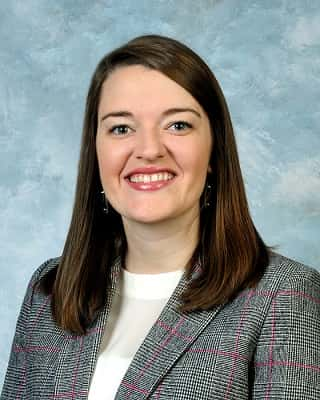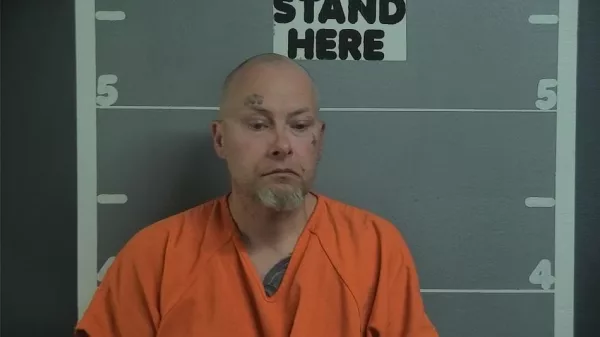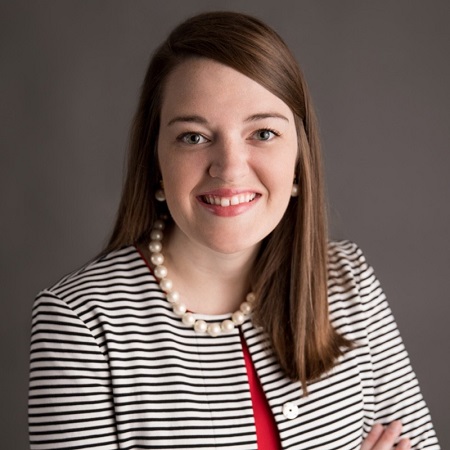
Before I give you a rundown of last week’s legislative activity, I want to highlight a recent news story that demonstrates how important it is to pass legislation that helps Kentuckians and addresses real, everyday issues.
Just weeks after legislation we passed during the 2020 Regular Session became law, a bill aimed at giving law enforcement more tools to investigate and prosecute human trafficking cases was used to make an arrest in an alleged trafficking case in Owensboro last week. This bill, HB 2, expands the state’s human trafficking awareness campaign and requires publicly owned airports, train stations, and bus depots to post the human trafficking hotline.
This is an example of how a commonsense approach to enacting laws can make a difference without burdening Kentuckians or creating more bureaucracy. This issue is especially relevant because the Grayson County Health Department has just recently announced their commitment to raise human trafficking awareness by using our social media platforms, as well as other forms of community outreach, to help #SaveGCKids. Learn more by checking out their Facebook Page @GraysonHealthCenter to see how you can help our own community.
Here are a few of the highlights during last week’s interim joint committee hearings:
Public Pension Oversight Board: In this month’s meeting of the Public Pension Oversight Board, we heard quarterly investment and cash flow updates from the Kentucky Retirement, Teachers’ Retirement, and Judicial Form Retirement System.
The Kentucky Deferred Compensation Authority (KDC), provided members with a timely COVID-19 update. The Kentucky Public Employees’ Deferred Compensation Authority is authorized under statute to provide administration of tax-deferred supplemental retirement plans for all state, public school, and university employees. Deferred Comp is now an opt-out program instead of an opt-in program, and awareness has increased with state employees about benefits.
During COVID-19, participants were allowed to borrow COVID-related expenses and with the penalty waived thanks to the CARES ACT. KDC assisted 357 participants with COVID-19 withdrawals, which saw an average of $17,347. This opportunity prevented foreclosures and helped participants pay bills at a time when they needed it the most.
Interim Joint Committee on Veterans, Military Affairs, and Public Protection: In this month’s meeting of the Interim Joint Committee on Veterans, Military Affairs, and Public Protection, we heard from our first responder community about emergency preparedness during the coronavirus pandemic.
According to law enforcement representatives, local departments quickly adapted to the new norms of policing during this pandemic by adopting safety guidelines and using personal protective equipment (PPE). These methods helped prevent anticipated COVID outbreaks. Their concern now is that smaller departments need to continue to have accurate testing to avoid an epidemic.
The Kentucky Professional Firefighters Association also testified this month. One thing unique to firefighters is 24-hour shifts where they live at the firehouse waiting for emergency calls. Extra sanitation was needed to keep those locations COVID-free. The difference in police departments quarantining and firefighters quarantining is those police officers, for the most part, work individually from their cruisers. Firefighters work in close contact in crews so that if one person contracts the coronavirus, the entire team must quarantine.
Interim Joint Committee on Health, Welfare, and Family Services: Last week’s meeting was incredibly emotional, as presenters discussed the COVID-19 death rate in long term care facilities. Unfortunately, this virus hits our elderly and those with existing health issues the hardest. As a result, more than half of Kentucky’s COVID-19 related deaths have been in long term care facilities.
Although additional funding has been made available for facilities with patients who test positive for COVID-19, it has not been adequate to meet the needs. I hope that as we continue to battle this disease, we can take a stronger, more aggressive approach to how we handle outbreaks in long term care families.
Long-term care facilities have a tremendous working knowledge of dealing with contagious diseases. They are required to follow rigorous cleaning, reporting, and safety procedures. I would like to see the state give them more flexibility to do what they need to do to help their residents stay healthy.
Interim Joint Committee on State Government: The Interim Joint Committee on State Government was one of five committees that met at the Kentucky State Fair. Though the fair was closed to spectators, we could still have robust discussions in each of the meetings.
This month, we heard from the Kentucky County Clerk’s Association and the Kentucky State Board of Elections. The clerk’s group presented information about the June primary and gave a preview of November’s General Election. The primary was a struggle for everyone, according to the presenters. That had a great deal to do with the limited time local County Clerk’s had to implement changes and, frankly, the challenges they faced with COVID.
The mail-in ballots created a new challenge, with thousands of ballots not counted because they had signature problems. Despite the problems, they shared that Kentucky overall administered the election well. There will be a shift in the general election to focus on more in-person voting.
Interim Joint Committee on Agriculture: The Interim Joint Committee on Agriculture also met at the Kentucky State Fair last week. The Agriculture Commissioner discussed how this state fair looks vastly different this year than in years past.
There were no vendors or spectators, but participants were still able to come and showcase livestock. Unfortunately, most local county fairs were canceled this year, and this State Fair would likely be the only opportunity for youth to showcase what they have worked all year for.
The committee also heard an update on a food processing fee proposal by the Kentucky Department of Public Health. The Department is considering a new fee structure that would cause food processor permit fees to skyrocket. This new fee structure is excessive and unnecessary, especially when many businesses are already struggling. I understand that the Department is now reconsidering this proposal after hearing from legislators and the Agriculture Commissioner.
I was proud to sign onto the colleague letter to the Governor’s Office expressing our concerns. The committee also thanked Warren Beeler, the outgoing Executive Director of the Governor’s Office of Agriculture Policy, for his service. Warren served our Commonwealth faithfully in this role, and I appreciate all he has done for our agriculture community. Our state lost a tireless advocate for farm families through his departure and I know his knowledge and expertise will be missed. We are lucky here in the 18th District though that Warren is our neighbor in Caneyville!
Interim Joint Committee on Local Government: This committee discussed the moratorium on utility cutoffs due to nonpayment implemented by the Governor. This mandate has been in effect for nearly five months with no end in sight. I think it was smart and compassionate to offer leniency in utility payments at the beginning of the crisis. However, Kentucky is only one of four states with a mandatory suspension of disconnections with no end date. This is becoming a huge cost burden to our local cities.
The committee also discussed the need for increased access to broadband internet. As we move into a more virtual world, all corners of our state must have reliable internet access. Access is a critical component in economic development, providing telehealth services, and for kids participating in distance learning.
I am always available to discuss any issue that you find pressing. I can be reached through the toll-free message line at 1-800-372-7181, and you can contact me via e-mail at Samara.Heavrin@lrc.ky.gov or follow me on Facebook @KYRepSamaraHeavrin for regular updates. You can also keep track of committee meetings and potential legislation through the Kentucky Legislature Home Page legislature.ky.gov.
State Rep. Samara Heavrin







